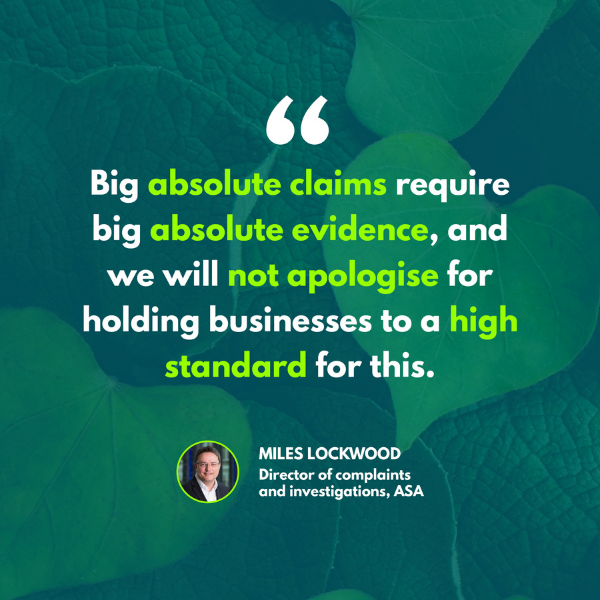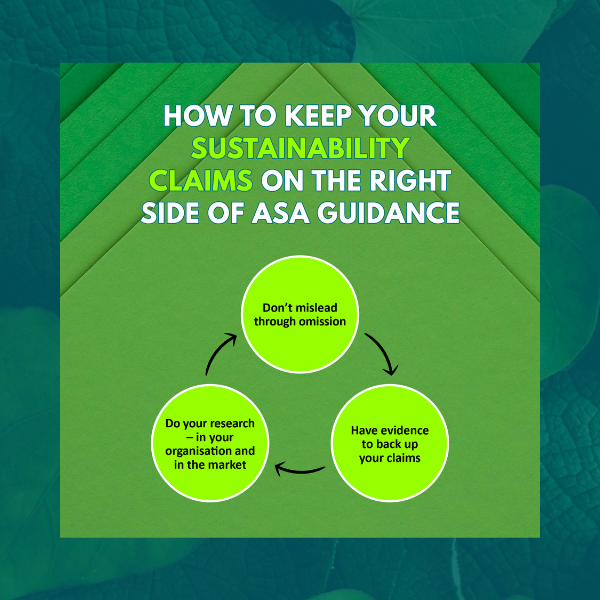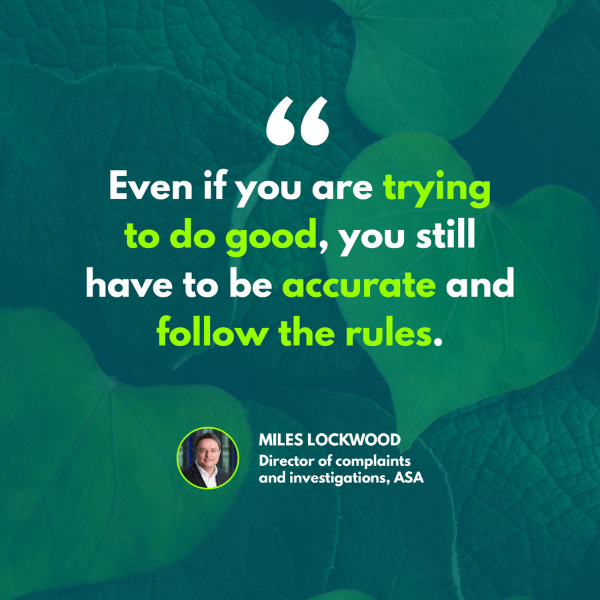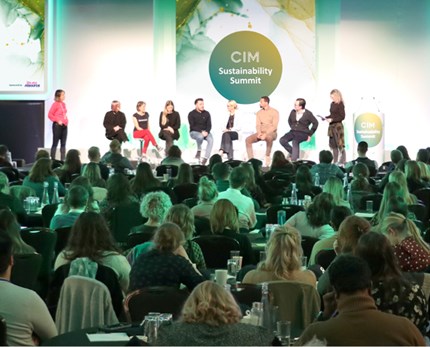Q&A: How the ASA are keeping advertisers accountable to their sustainability claims

Marketers creating environmentally-focused campaigns, watch out - the Advertising Standards Authority (ASA) is cracking down to make sure those claims can stand the test of science, as Oatly, Innocent, Alpro and Pepsi Lipton can all attest to. CIM’s MaryLou Costa speaks with Miles Lockwood, the body’s director of complaints and investigations, to unpack these latest rulings and advise marketers on what to focus on to stay on the right side of the regulator.
Why the rise in rulings against sustainability claims? What new guidelines do marketers need to be aware of?
Miles Lockwood (ML): The guidance is actually not new. We recently published guidance on misleading social responsibility and environmental claims in advertising, and what that did for the first time, was bring together all of the really important example cases together in one place. The ASA has actually had environmental rules in our code for decades, and we've long been ruling against misleading and socially irresponsible claims.
What has also changed is that we recognised that we needed to go further, faster, in our regulation of this, because of the climate crisis and the environmental concerns that everybody rightly has about this. And we have decided deliberately to apply a lot more resources to this issue and shine a greater light on it. But the rules have been there for a long time.

How does your work reflect changing consumer attitudes and, in turn, how marketers have been responding to those?
ML: Over the last five years, we have seen complaints ticking up. If you look at Alpro, Innocent and Pepsi Lipton, and a lot of others we have in the pipeline, all of those initiated from members of the public contacting us. So we're also responding to the changing nature of marketing behaviour in this area, because advertisers are obviously moving into the space, and a lot of them are trying to do good.
A lot of companies are responding, in their own way, to the climate emergency, by evolving their products and services to have a lower carbon footprint and lower environmental impact in terms of public consumption. So it's not entirely altruistic, because they're also tapping into that greater consumer concern. If that's done really well, then the ASA will approve that. But where it gets really interesting with some of the recent rulings, is that you've got lots of competitors trying to do the right thing, but they keep tripping up.
 We are not trying to be an enemy of the good here, but the recent rulings do disclose something important, which is that even if you are trying to do good, you still have to be accurate and follow the rules. You’ve still got to think about things like your full lifecycle, you’ve still got to have the evidence, and not mislead by omission, because we will not let companies off the hook just because they are trying to promote something which is best for the environment.
We are not trying to be an enemy of the good here, but the recent rulings do disclose something important, which is that even if you are trying to do good, you still have to be accurate and follow the rules. You’ve still got to think about things like your full lifecycle, you’ve still got to have the evidence, and not mislead by omission, because we will not let companies off the hook just because they are trying to promote something which is best for the environment.
When a company like Alpro says they are good for the planet, which is what they did, they needed to contextualise what they meant by that. “Good for the planet” splashed on the side of buses was pretty meaningless. How was it good for the planet? Because the product had a lower carbon footprint? Because all their packaging is 100% recyclable. I'm sure Alpro is probably better for the planet than other animal-based products, but you’ve got to be precise, and have the evidence to account for a product’s whole lifecycle.

Where else do you think advertisers are going wrong?
ML: There's obviously a difference between subjective claims and objective claims. There's also a big difference between pure puffery tokenism and claims which actually have a meaning, and have an economic impact on the behaviour of the consumer, which is what we’re concerned about here.
Innocent also claimed to be doing “good for the planet”, and many consumers would think that by buying Innocent drinks, they were in some way having a net benefit on the environment over and above alternatives - when they hadn't proven that.
But companies are staffed by human beings, and most of the time, most people get it wrong, because they're confused. They don't think deeply enough about the issues, and they don't recognise perhaps that of all the areas of advertising, this is one of the most complicated because of the complicated science.
Sometimes the lifecycle of a product will go way up the manufacturing value chain, which is outside the direct control of the company, which is the one making the marketing claims.
What areas specifically are you looking at?
ML: We're carrying out some research at the moment into carbon neutral/net zero electric vehicle claims. That covers all sorts of marketing claims you see from all sorts of different advertisers of electric vehicles.
The other area we're focusing on are the three areas which have been identified with the current Climate Change Committee's priorities for consumer behaviour change in carbon reduction - energy, heating, transport. We've also got a review underway which covers things like plastic in terms of recyclable and biodegradable claims. Then we're going to move on to meat and dairy sustainability claims, and sustainability claims of plant-based products.
What overall advice do you have for marketers creating sustainability campaigns?
ML: Just be cautious. Think about the science, think about the evidence, and put yourself in the shoes of the consumer. Big absolute claims require big absolute evidence, and we will not apologise for holding businesses to a high standard for this.
If you're looking to become more confident when working on environmentally focused campaigns and making sustainability claims, visit our Sustainable Marketing Hub for all the resources you need to build your knowledge, confidence and expertise, including our Sustainable marketer training course.

- 0 views

 FAQs
FAQs
 Log in
Log in
 MyCIM
MyCIM






